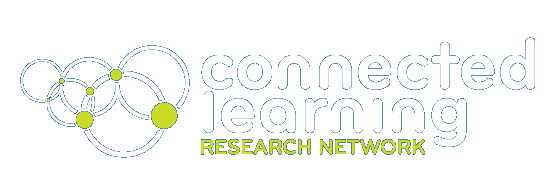When We Played Video Games With Kids
August 2, 2012
PROJECTS: Leveling Up
PRINCIPLES: Academically oriented, Interest-powered, Openly networked, Peer-supported, Production centered, Shared purpose
TAGS: Connected Learning, StarCraft II
Most parents would agree that competitive sports like soccer and football are good for kids. How about competitive video games? In my research, I interviewed kids who not only share video game interests with family members and peers, but they also derive academic and social benefits from their gaming experiences.
Alex Giovanni is a 15-year-old high school student from Winter Park, Florida. Alex is a from a “video game family.” Since age 7, Alex has played video games along with his father and two older brothers. Video game sessions were like little family parties. His mother, while not interested in gaming, would help serve food and drink to the players.
Consider evening TV sessions we often share with our families. For Alex, video gaming was just that. He and his brothers come home from school around 3, eat dinner at 6, and play video games with their parents from 7 to 8 p.m. By playing video games with their children, Alex’s parents helped him develop a video gaming routine that had never interfered with his schoolwork and other responsibilities.
Today, Alex continues to participate in a weekly video game party organized by his oldest brother, Sean, who now lives in his own house. On other days, he returns home from his high school and puts in 5 hours of homework every day. He is an academic achiever with a high 4.0 GPA, and participates in the International Baccalaureate program.
Alex now volunteers in the peer-driven High School Starleague (HSL), a competitive StarCraft league of 131 high schools in the U.S.. He credited his active participation in eSports to his mother who taught him the value of building community. As an HSL management member, Alex wants to see electronic sports (eSports) succeed in the U.S. and he believes that he should contribute and play his part.
Unlike Alex, most StarCraft youth we interviewed pursue their interest in StarCraft at home alone. Most parents give their kids “free time,” a term roughly understood as the period of time outside of homework and adult-sanctioned activities like sports. Whatever kids do in their free time, parents do not ask, and kids do not tell. Even with little support, some kids went a long way with StarCraft, and found that learning the game helps them with their academic work and future career.
Matthew Logan is 15-year-old high school student from San Diego, California. His parents say he is a good kid who does well at school. Not only did he earn straight ‘A’s, but he also participated in the Advanced Placement program. He is on track to a college like Stanford – just like his brother, and thus is allowed ample free time to do as he pleases. But unbeknownst to his parents, Matthew is also a professional StarCraft gamer. Despite playing relatively little, due to his time commitment to maintain his grades, Matthew self-taught to become one of the top eight StarCraft II online players in the U.S. He taught himself StarCraft by analyzing strategies methodically, and playing with players he met online. Subsequently, he was invited to join the professional StarCraft team Insanity. Thereafter, Matthew continued to train online with his professional gamer team mates in Insanity. So far, he was able to keep his gaming identity from his parents, but that was about to change.
On June 8, 2012, Matthew was to debut at the Major League Gaming tournament, an International StarCraft II event held in Anaheim, California. He was still wondering how to break the news to his parents: “Well, that’s been my main hurdle going forward. I’m not really sure how I’ll explain it.” Video games were never a conversation topic for the family. For Matthew, this was the gulf he needed to cross—to make his parents see what video games can do for him.
Playing StarCraft II at the highest level requires a great deal of perseverance and analytical skills, both which Matthew believes has academic relevance:
“Since playing StarCraft II, I take a much more improvement-oriented approach to basically all aspects of life. A lot of people look at their mistakes and see that as [a reflection of] themselves. But it’s important to separate [these two]. Every failure is a learning opportunity. There is no point in feeling depressed or guilty. It is more important to be realistic about how we can improve.”
In the StarCraft community, I saw video gamers like Alex and Matthew, who had done well in school, and are also active participants of StarCraft communities. Unfortunately, social stigma against video gaming often emerges as obstacles for these gamers to develop their interests out in the open. Had Matthew been a top college football player, teachers and parents would endow him with praise and possibly scholarships. But video gamers have few such privileges.
Video gaming can be stigmatized, even among middle and high school students. I have talked to video gamers who intentionally conceal their video game interests from their school friends. For example, most of Alex’s middle school friends only know him as a soccer player. He had intentionally avoided discussing video games with all except one or two of his best friends. He said, “Strangely enough, the majority of my middle school, if you asked them, would probably say, ‘Alex is not a gamer’.”
All societies impose on youth what we think is best for them. But environments change. Much parenting materials and practices are reflecting a past era. I am a father of a two-year-old. I read to him nightly—about caterpillars, farms, and trains—things that we do not see every day. Things that we encounter daily—like the iPad and its games—we read little about. But what types of challenges will he more likely encounter later in his life—caterpillars or video games?
Video games are creating new opportunities for youth, ways of learning, career pathways, and social communities. Youth will pick up these activities, so long as they can see positive impacts on their lives. As teachers and parents, we can continue to leave kids alone in their “free time,” and remain starkly absent in their own fields of play. Or we can choose to make a difference, by being there—providing encouragement and guidance to them, as their explore, learn, and contribute to their interests. Doing so, we may be nurturing the next great students, community leaders, and electronic athletes, in a new world that is waiting for them.
—
With his parents’ approval, Matthew represented Insanity at the Major Gaming League tournament. He defeated four other competitors, including an internationally renowned professional gamer, and progressed deep into the tournament rounds.
[Alex Giovanni, Matthew Logan, and Insanity are pseudonyms]


